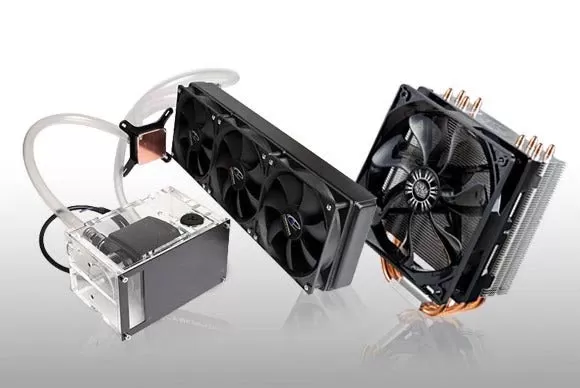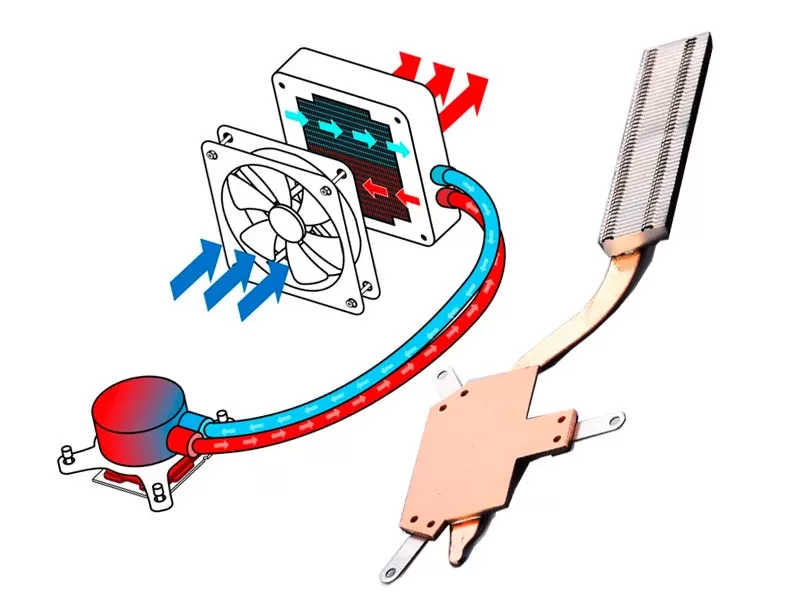Liquid cooling is more efficient than traditional heat sinks in certain situations. Liquid cooling involves using a closed-loop system or a series of tubes to circulate a liquid coolant, such as water or a specialized coolant, to remove heat from the CPU.

Here are a few reasons why liquid cooling can be more efficient:
Greater Heat Dissipation: Liquid has a higher thermal conductivity than air, which means it can transfer heat more effectively. This allows liquid cooling systems to remove heat from the CPU more efficiently than air-based heat sinks.
Lower CPU Temperatures: Liquid cooling systems can keep the CPU at lower temperatures compared to air-based cooling solutions. This can result in improved performance and stability, especially for overclocked or high-performance CPUs.
Quieter Operation: Liquid cooling systems often operate more quietly than air-based cooling solutions. This is because they typically use larger radiators and fans that can run at lower speeds while still providing effective cooling.
Flexibility and Customization: Liquid cooling systems offer more flexibility in terms of design and customization. They can be tailored to fit specific computer cases and CPU configurations, allowing for better heat dissipation and more efficient cooling.

However, it's important to note that liquid cooling systems can be more complex to install and maintain compared to traditional heat sinks. They require additional components such as pumps, radiators, and tubing, and there is a risk of leaks if not properly installed. Liquid cooling is also generally more expensive than air cooling solutions.
Overall, liquid cooling can provide superior cooling performance and efficiency, particularly for high-performance systems or situations where heat dissipation is critical.
- Liquid Cooling
Tags :


 +86-18902844286
+86-18902844286
 E-mail
E-mail
